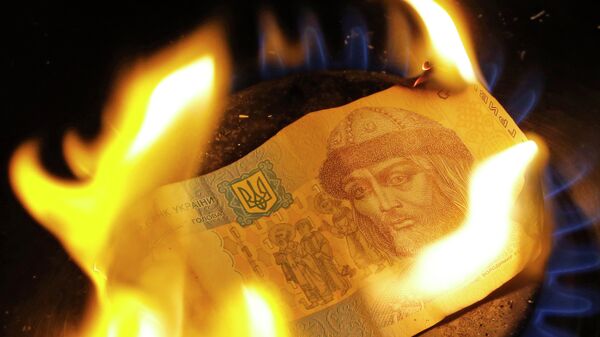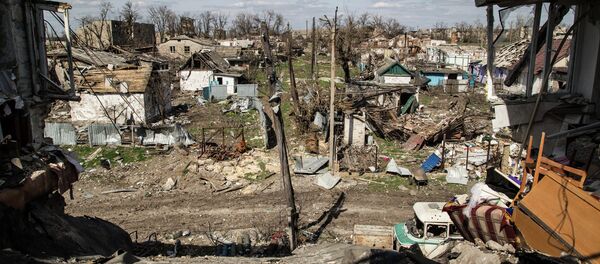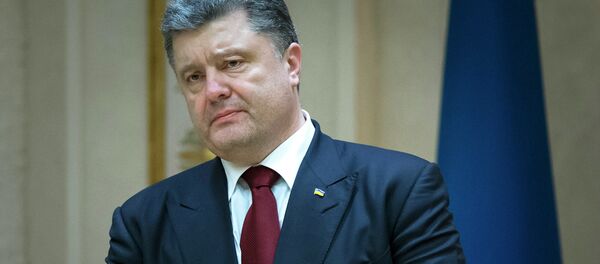Kiev's effort is ostensibly aimed at raising billions of dollars for the country's cash-strapped budget, as the economy, hit by a decline in trade with Russia, financial panic, and civil war, lies in tatters and on the verge of default.
Companies on the docket include the electricity generation firm Tsentrenergo and six of its regional distributors, gas transportation companies, the Odessa Port Plant, mining operations and agricultural holdings, which together are projected to bring 17 billion hryvnia (about $790 million) into the country's coffers.
Earlier this year, Ukrainian officials held similar conferences in Washington, Berlin and Paris. As late as last month, Prime Minister Arseniy Yatsenyuk met with Ukrainian-Americans in Washington, telling them that his government wants "to see American owners on the territory of Ukraine," stating that "they will bring not only investment, but also new standards, new ways of managing the companies, and a new investment culture."
But with the IMF (conservatively) projecting a 9 percent decline in Ukraine's GDP in 2015, with inflation hitting nearly 50 percent and the country approaching debt levels amounting to 100 percent of GDP, analysts warn that the present may be the worst possible time for Kiev to sell off its large, state-owned firms. The country's economic decline, political instability and the war in the east have hit property values hard, which means that Kiev is unlikely to collect significant sums for the large, valuable, strategic assets offered up for sale.
Furthermore, while Yatsenyuk recently announced that over 150 major investors have already RSVP'd to attend the Washington conference, he has already been hit by dissention from within his own cabinet, with officials from the Energy Ministry and the State Property Fund challenging the pace and scale of privatization.
In April of this year, Ukraine agreed to an International Monetary Fund-monitored austerity program, which called for the shedding of 24,000 government jobs, higher taxes, privatization of state assets and the withdrawal of subsidies on utilities in exchange for a total of about $40 billion in IMF-led foreign assistance over the coming four years.




